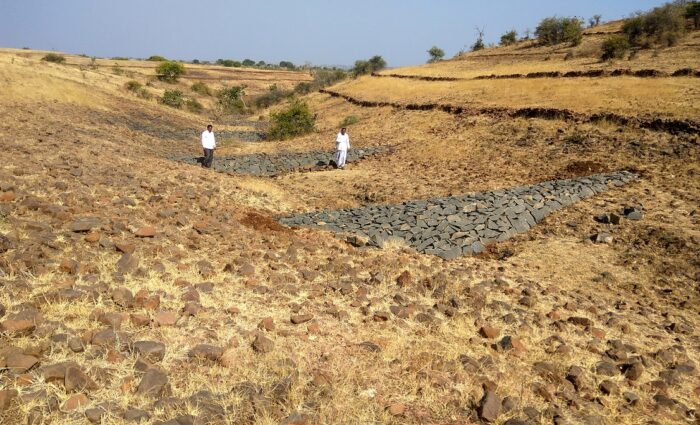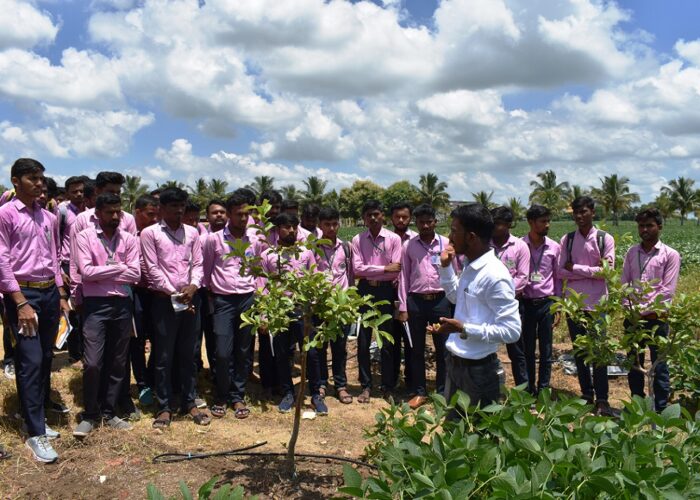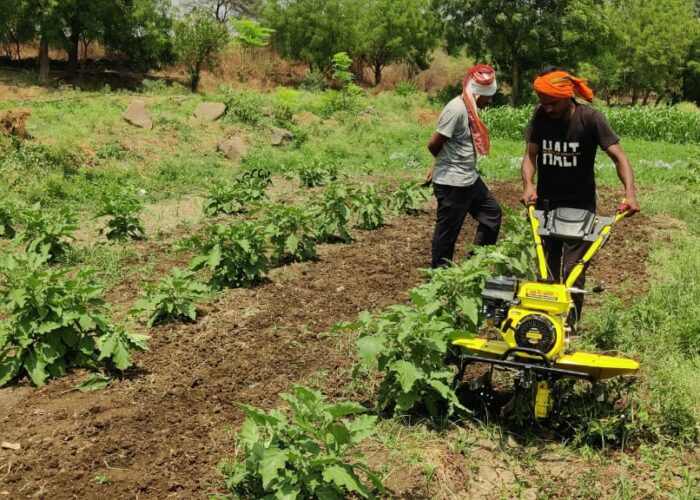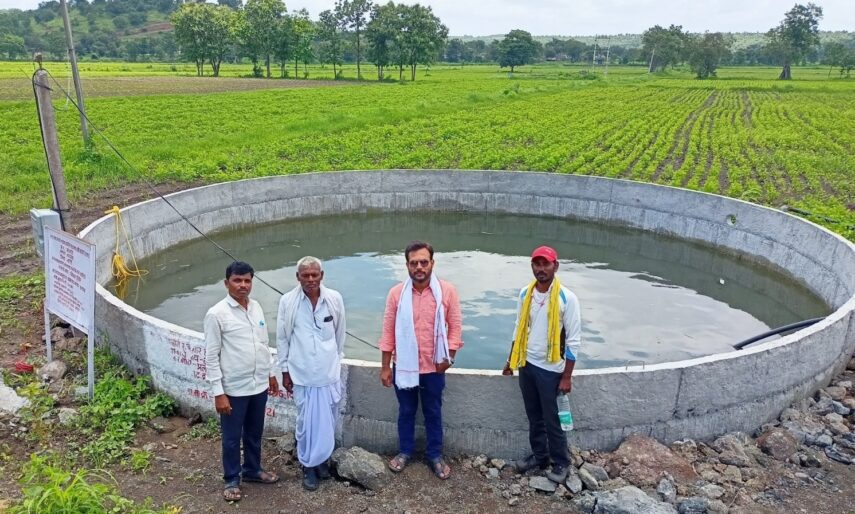ENVIRONMENT & RURAL DEVELOPMENT
Sanskriti Samvardhan Mandal (SSM) has been actively working towards a sustainable environment and livelihood enablement in the Marathwada region of Maharashtra, particularly in the Nanded district, since 1992. This integrated approach addresses critical challenges such as water scarcity, soil erosion, and ecological degradation. By implementing various strategies, including Watershed Development, Soil & Water Conservation (SWC) measures, afforestation, livelihood generation, and community organising, SSM aims to achieve long-term well-being for both the environment and local communities.
Over the past 30 years, SSM has brought a revolutionary change to the lives of more than 12,000 families in over 60 villages. Notably, water scarcity issues have been entirely resolved in six villages: Nagdarwadi, Kedarwadgaon, Wanjarwadi, Bamni, Halda, and Loni.

SOIL & WATER CONSERVATION (SWC)
SSM’s primary objectives are mitigating drought, reducing soil erosion, conserving water resources, and increasing groundwater storage. The organisation employs a dynamic project management team with technical expertise to implement SWC measures in a time-bound and goal-oriented manner. Various initiatives include constructing Continuous Contour Trenches (CCTs), bunds, the DOH model, check-dams, de-silting and rejuvenating lakes, and applying nutrient-rich silt on farmers’ fields. These measures help prevent soil erosion, enhance land fertility, and conserve and harvest water for future utilisation.
AFFORESTATION
SSM places great emphasis on afforestation and ecological restoration at various levels. Tree plantation initiatives are carried out in schools, watershed development projects, and at the beginning of any new work undertaken by the organisation. Involving school children in afforestation activities helps raise awareness about the importance of natural resources and the significance of trees in providing a healthy environment. Each child from SSM schools is responsible for planting and nurturing at least one plant annually, planting and nurturing over 600,000 trees in and around the campus. These efforts create natural habitats and promote interdependence among different species of animals and birds, contributing to the overall cycle of ecological restoration.


AGRICULTURAL DEVELOPMENT THROUGH NRM
SSM’s integrated approach to NRM also focuses on agricultural development. By implementing sustainable practices and promoting agri-allied opportunities, the organisation strives to enhance the livelihoods of rural communities while ensuring ecological restoration. SSM utilises the expertise of Krishi Vigyan Kendra’s subject specialists, who work closely with the project management team to create awareness about abundant opportunities for sustained livelihoods. This approach fosters ecological restoration and strengthens connections with the villages, promoting mutual learning and development.
COMMUNITY ORGANISATION
Recognising that a significant portion of the population comprises marginal farmers and farm labourers with limited opportunities, SSM has focused on community organisation and engagement. By forming Women’s Self-Help Groups and recently establishing Farmer Producer Organizations (FPOs), SSM aims to empower women and strengthen farmers. These organised communities work towards common goals and benefit from unified efforts. FPOs provide agricultural support, equipment rental, crop insurance, value addition, and improved sales opportunities to their members, thereby enhancing the economic prospects of local farmers.


LIVELIHOOD GENERATION
SSM indirectly contributes to livelihood generation through its integrated approach by promoting sustainable practices and agri-allied opportunities. SSM provides work opportunities during the offseason by empowering women in rural families and reducing drudgery through the capacity building of Women’s Self-Help Groups. Additionally, SSM continuously fosters the Farmer Producer Organizations (FPOs) to strengthen farmers’ abilities and provide them with professional management. FPOs offer agricultural inputs, rental agri-equipment, crop insurance facilities, value addition, and greater flexibility in the sale price of products to their members, enhancing livelihood opportunities for the farming community.
OUR SUCCESS STORY
From Participation to Transformation: Katkalamba Village's Journey of Empowerment

